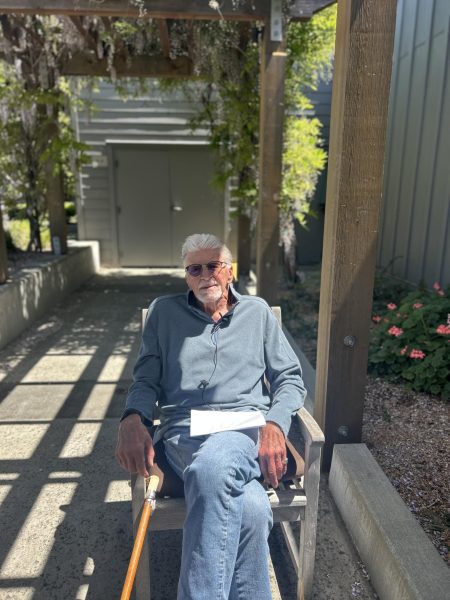Student Change Makers takes action to reduce educational inequality in Uganda
November 4, 2021
At the beginning of last year, brothers senior Simon Cohen and junior at University High School Nate Cohen investigated how developing countries were navigating the pandemic during the initial COVID-19 lockdowns. They reached out to James Kassaga Arinaitwe, a close family friend and the founder of Teach for Uganda. Arinaitwe explained his firsthand experience with the education system in Uganda and the lack of access to a quality education there.

“We don’t have access to preschool. So by the time [students] reach 15, they are struggling because their learning is a bit slow,” Arinaitwe said.
Arinaitwe’s dream was to receive an education that could make him successful. Through years of hard work and dedication, he was able to escape the poor education system in Uganda by receiving a scholarship for a high school education in the U.S. Once he graduated college, he moved back to Uganda, and started the non-profit organization Teach for Uganda to help Ugandan kids accomplish his same dream. Arinaitwe’s story inspired the Cohen brothers to start their own non-profit organization, Student Change Makers.

Student Change Makers raises money to provide students in Uganda with the tools they need to continue learning despite the limitations presented by the pandemic. COVID-19 had a strong impact on the brothers’ decision to start their organization.
“We hadn’t really given it too much thought before, but having this time to reflect on what we’ve learned [during the pandemic] made us think about how other people were doing. We came to a realization that we are very fortunate since we had access to Zoom and these online learning materials,” Nate said.
Simon further explained how he wanted Student Change Makers to make a change in Uganda.
“[We knew] how bad the situation was for other people, especially in much poorer countries, such as Uganda. We [understood] that during COVID-19 they weren’t learning, and wanted to find a way to help them learn now,” Simon said.
Once a week, Student Change Makers meets through Zoom with their partners from across the country. During these meetings, they discuss the progress made as well as fundraising and improvements that can be done. They also talk about which villages to aim for next to hit their goal of 10 villages by the end of the year. Unfortunately, Uganda has been shut down since June, but Student Change Makers has not given up, and they hope to get their program back up and running once the lockdown is lifted.
There are many opportunities for people to help Student Change Makers by donating, fundraising or helping to spread awareness. To join the non-profit, individuals must either raise money on their own or form a small group of friends to raise $7,500 to officially become a part of the program. While this is a significant amount, the money won’t only benefit an entire school with educational content but will also equip an entire village with internet and an electric charging station.

The organization isn’t just about providing resources but creating long-lasting connections. Each person in the program creates a short video talking about their lives in the U.S. Their counterparts in Uganda will respond with videos of their own. This part included in the organization helps inform kids in the US of what life is like for those in Uganda, which is a new way to open their minds to different perspectives.
“Our hope is that if we inspire [people], we could raise more resources to reach across Uganda, and [hopefully] for the first time, [the two organizations] Student Change Makers and Teach for Uganda will [bring] digital learning [into] rural Africa,” Arinaitwe said.
For more information, visit Student Change Makers’ website at https://www.studentchangemakers.org/.























